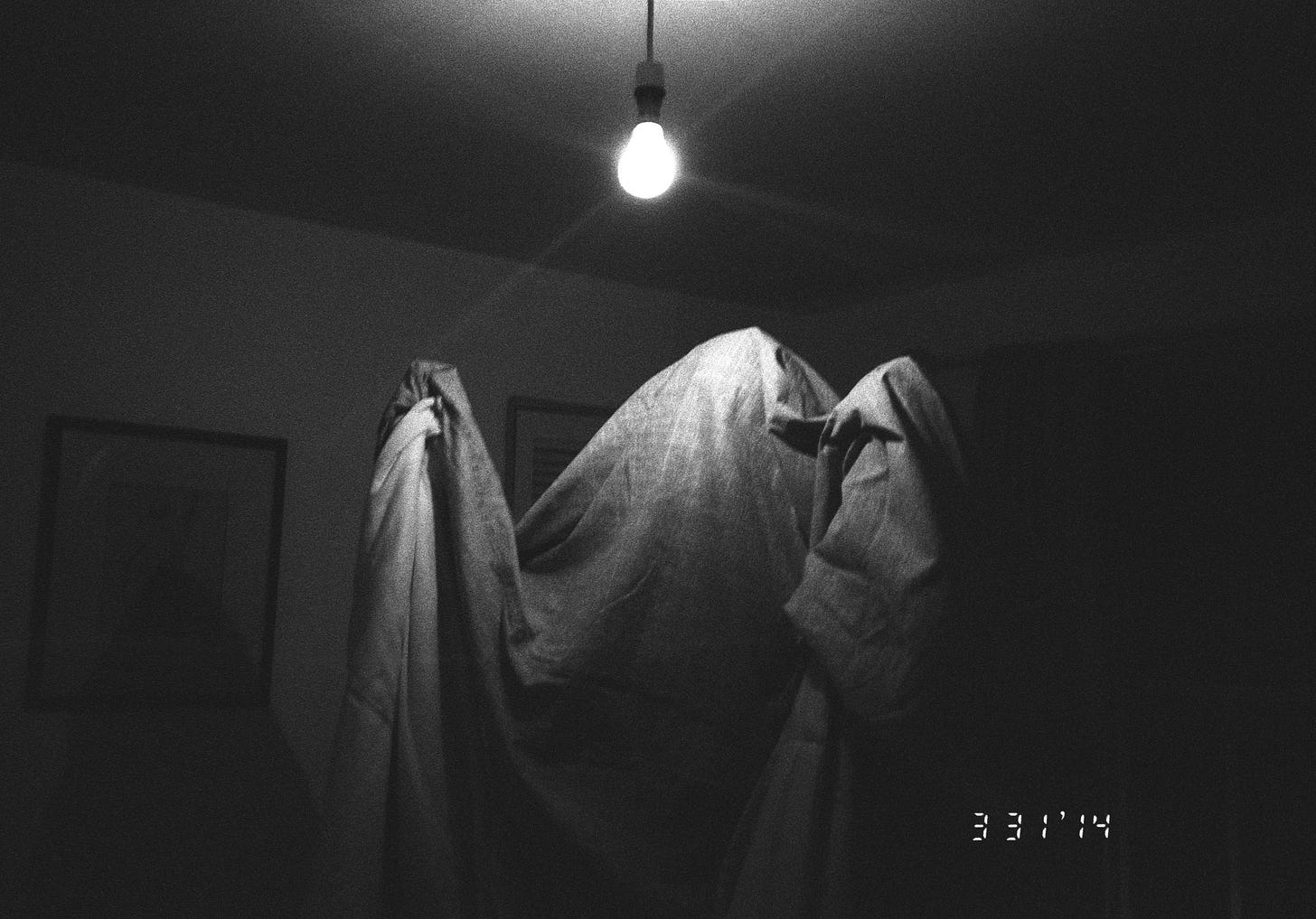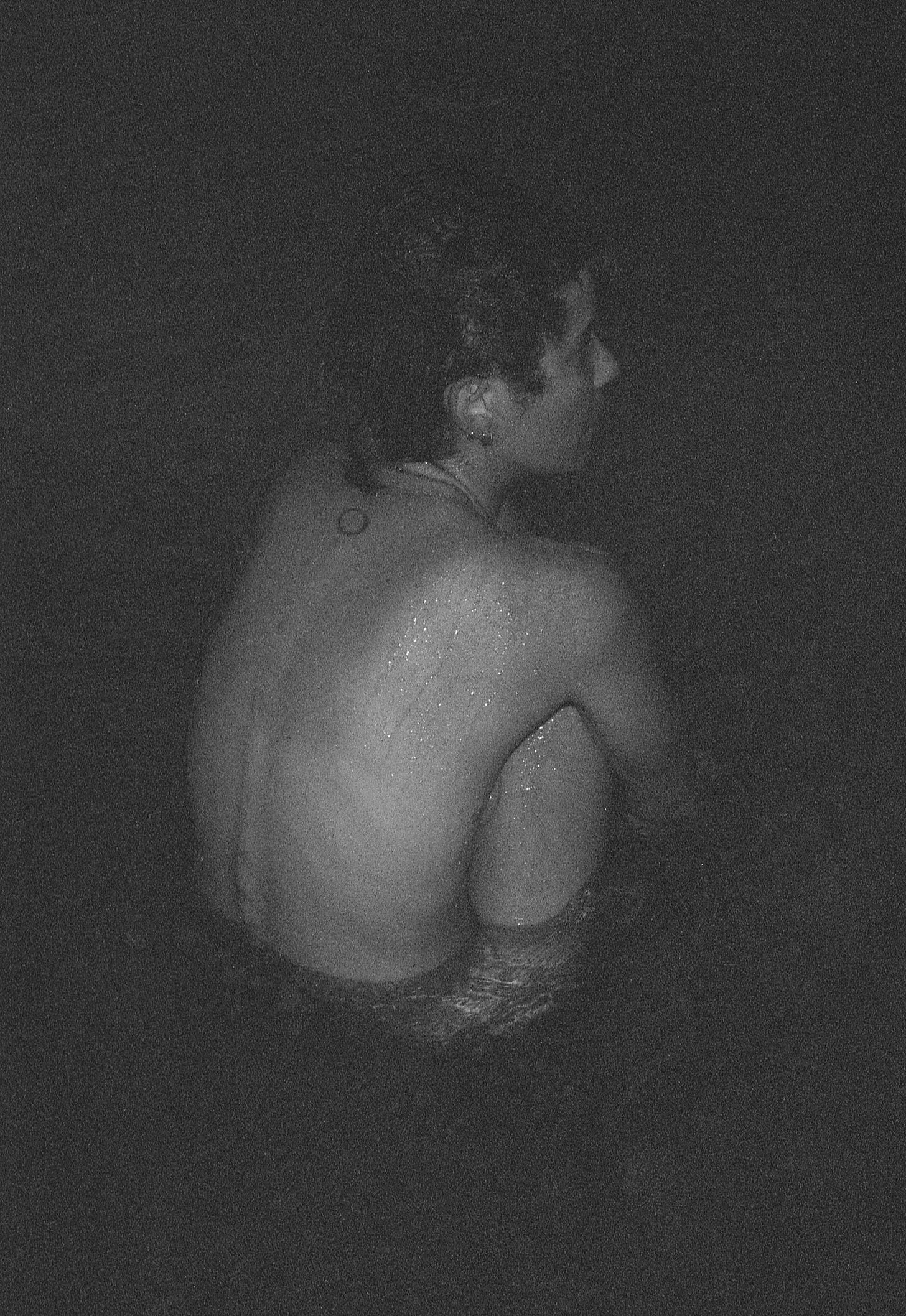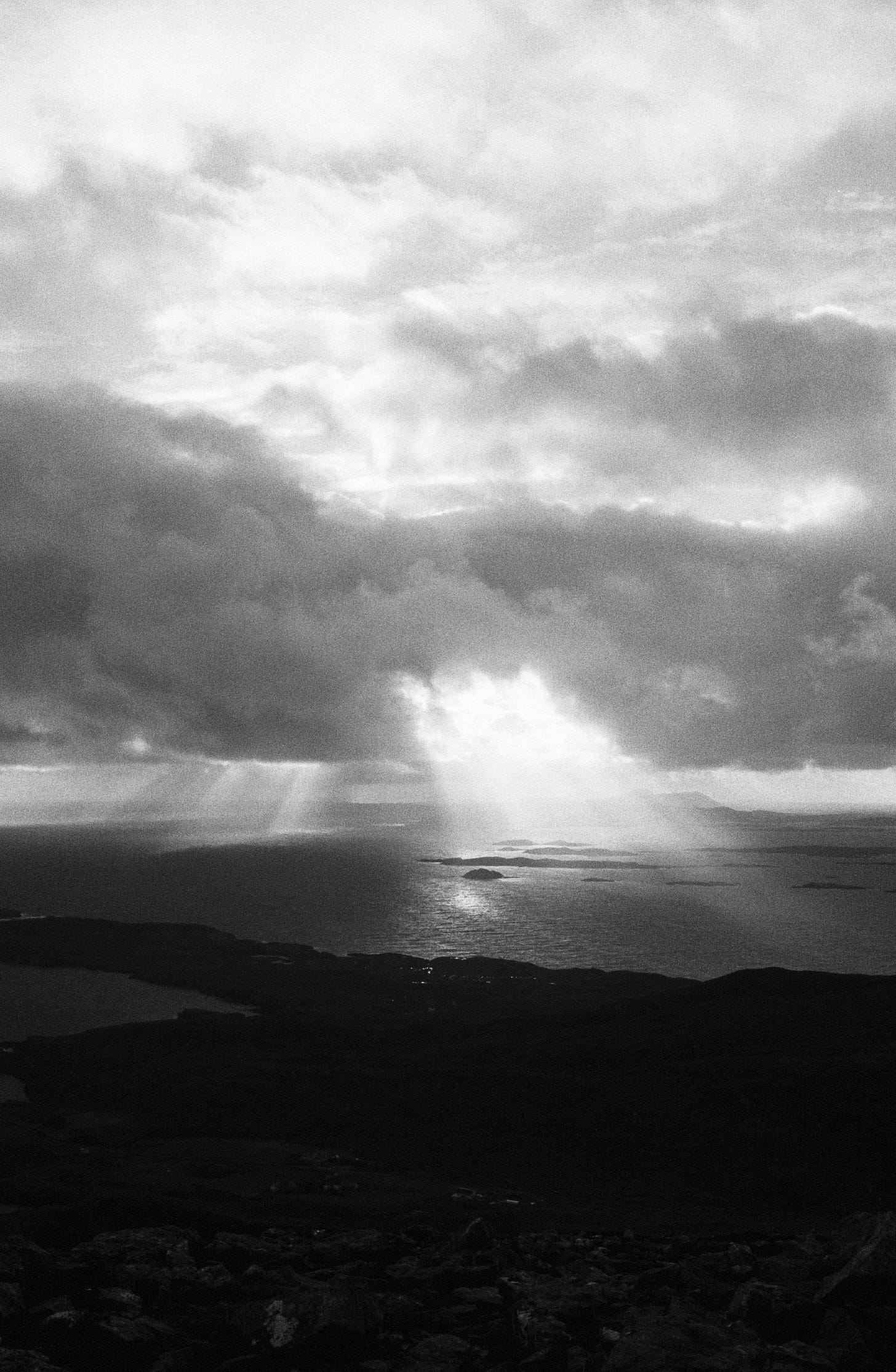After you have read this sentence, stop and try to think of two definitions for self-consciousness.
Perhaps your mulling made you realize just what an interesting concept it is. On the one hand, self-consciousness means to be ashamed. On the other, to be self-conscious is to know yourself, to be conscious of your self. By containing both these definitions, the word suggests an equation of transference: that to know yourself is in some way to be ashamed.
The most obvious cultural heritage of this notion is Adam and Eve eating from the tree of knowledge. As soon as they took that leap into knowledge, they became aware of their nudity, and covered up.
Living in the United States in 2021, it’s essentially impossible to imagine being completely unaware of our own nudity. There are people who have worked through self-consciousness (whether self or culturally imposed) to a state of comfort in their nudity, but the whole process is layered with awareness. In other words, we can intentionally strive to find comfort in our nudity, but we don’t (after infancy) have the ability to unintentionally be at home in it.
Of course, self-consciousness doesn’t just apply to our physical form, but to our psychic, emotional, and spiritual experience of ourselves. The word conscious is built from the Latin prefix “con” (with or thoroughly) and the verb “scire” (to know). So, to be conscious is to “thoroughly know.” This leads to the question: what’s the difference between “to know” and “to thoroughly know”?
By modifying “to know” with “thoroughly”, two things happen. First, there is an implicit undermining of “to know.” We tend to think of knowledge as whole and solid. But if it’s possible to “thoroughly know” then that must mean merely “knowing” is subject to error. It’s not as complete. Secondly, we are given a new form of knowledge, one that uses a spatial descriptor (through) to build our word “conscious.” To be self-conscious is to know yourself thoroughly, to have sort of “moved through” yourself.
Zooming out, our cultural interpretation of these words seems to lead to the following conclusion: others may know us, but that knowledge is partial, whereas our self-consciousness provides us with a more thorough understanding. Is this why we are ashamed, why we are often our own worst critics? Is it because we see more of ourselves than anyone else, and are ashamed at what we find in that privileged gaze?
But what, at the end of it all, are we ashamed of? The theological lineage of this root ties our shame to nudity, but isn’t that simply the convenient metaphor? And why is it that so many of our compound English words that include self (self-centered, selfish, self-interested, self-indulgent), have a negative connotation? When you break any of these words apart, there’s nothing inherently bad. Isn’t it good to be centered in your self? To be interested in yourself? The ending of ‘ish’ that forms selfish adds the meaning “of the nature or character of.” What is wrong with being of the character of yourself?
It’s ironic, given the general interpretation of the Western tradition as one that valorizes the individual, to see how linguistically uncomfortable with the word ‘self’ we English speakers are. We’re obsessed with the self, and we also treat it like a dirty word. Or maybe it’s not ironic--maybe it’s precisely because we are so obsessed with the self that the word has taken on such negative connotations.
But maybe there’s a different, more optimistic way to approach the origins of our word self-conscious.
Let’s revisit the scene that has set the tone for our linguistic heritage of ‘self-consciousness.’ What is described on the surface is Adam and Eve rushing to cover their genitals. But isn’t that just the outward consequences of what has occurred internally? Isn’t this an analogy for the moment in which we recognize the self as (at least) two--the self that is acting, and the self that is watching and judging the actor?
And isn’t this a lovely way to point to the peculiarity of this phenomenon that we, in the modern day, barely think twice about: that we never experience ourselves as singular? We are always ourselves, and also the story we are telling ourselves about ourselves. We can endow that story and the distance between how we act and who we, as the omniscient narrator, would like to be with shame, but it isn’t necessarily so. It is also possible to see that distance as the necessary condition for awareness, full stop.
Awareness is what makes insecurity and fear possible, but it is also what makes love and gratitude and wonder available as experiences.
It is in this vein that Milton so masterfully nuances the scene in Paradise Lost after Adam and Eve wake up from their ‘fall.’ Yes, they are ashamed and cut boughs from the trees to cover themselves, but then they experience natural beauty in a way they haven’t previously. For the first time, they are aware of their nudity--which is to say, their finitude--and this awareness enables them to be moved both by each other’s forms, and later by the sunset.
The terrible ‘fall’ into awareness is what opens their eyes to beauty. In our own small ways, isn’t that true for us all?
Words - Finnegan Shepard www.finneganshepard.com
Photography - Mischa de Stroumillo www.mischadestroumillo.com







